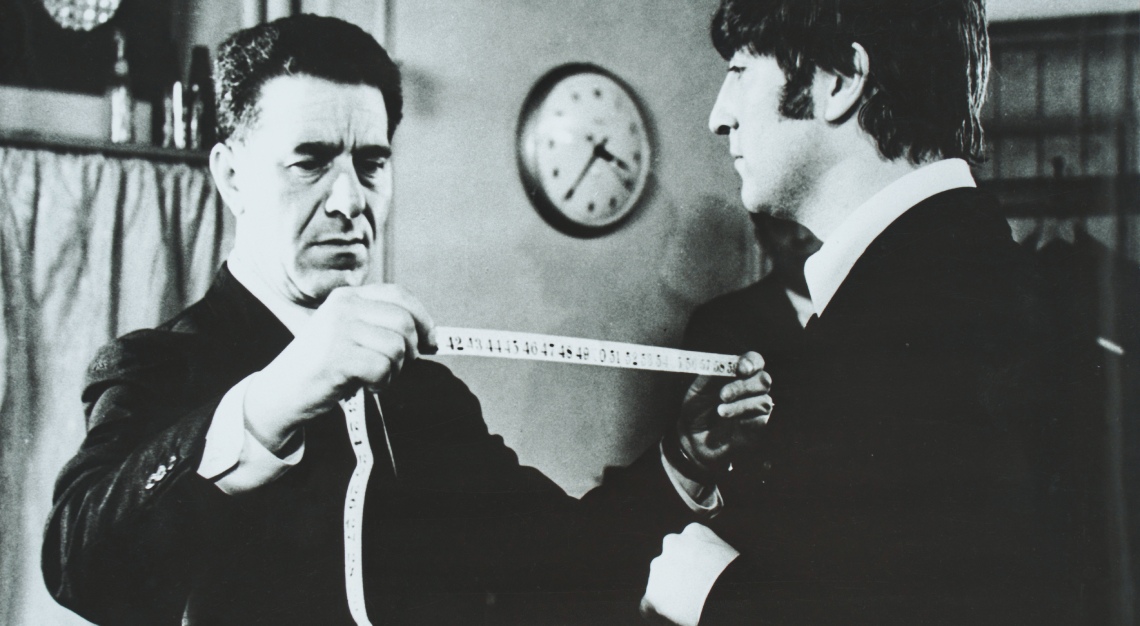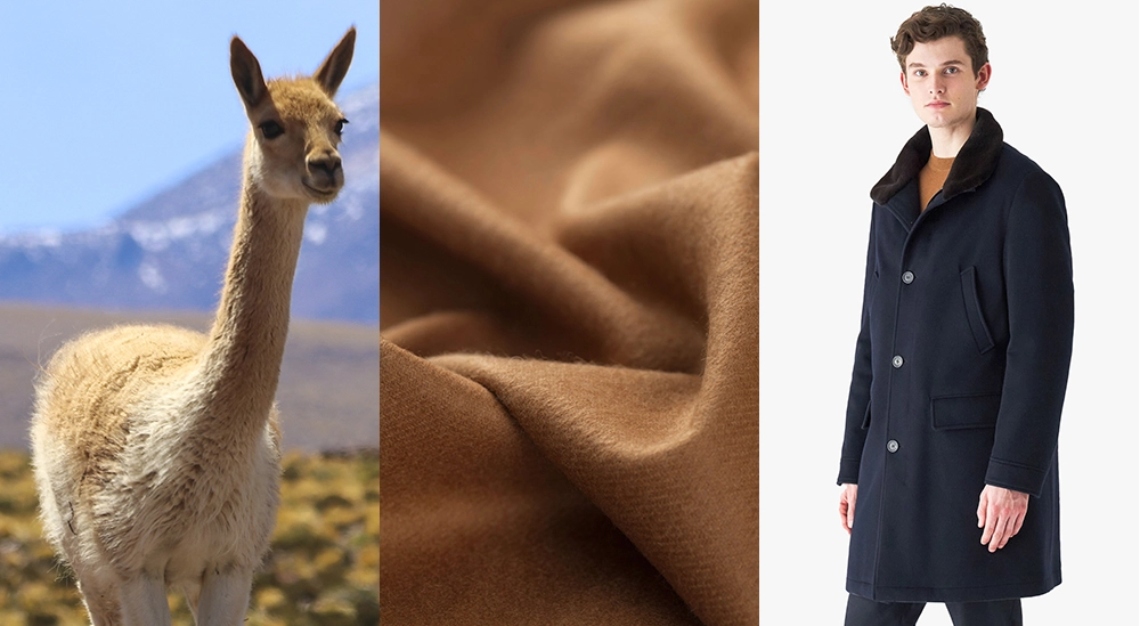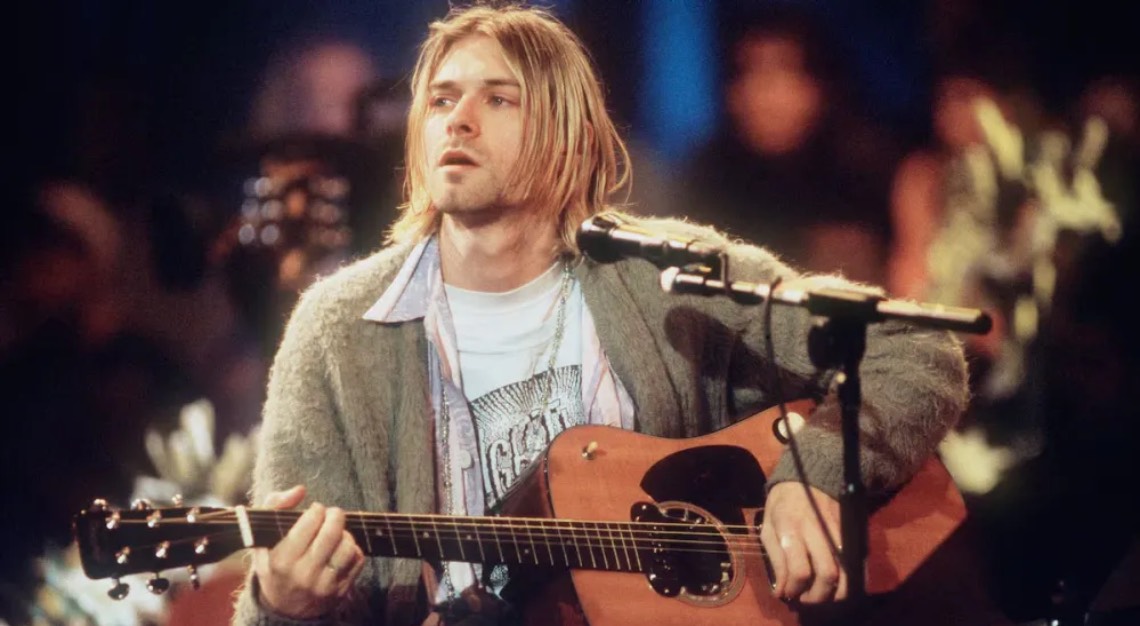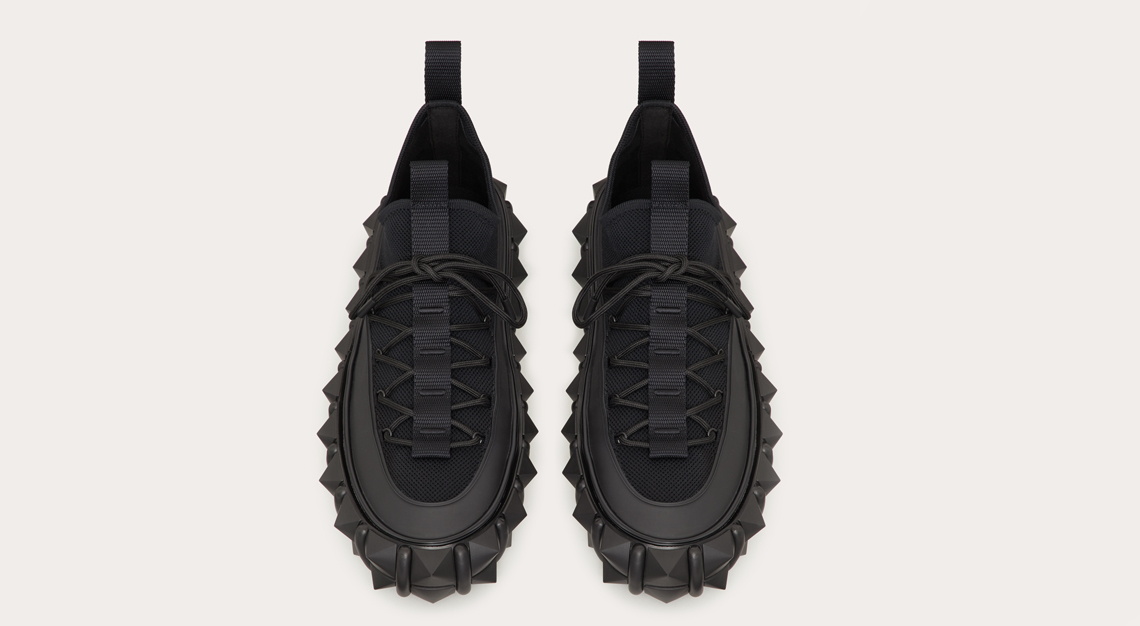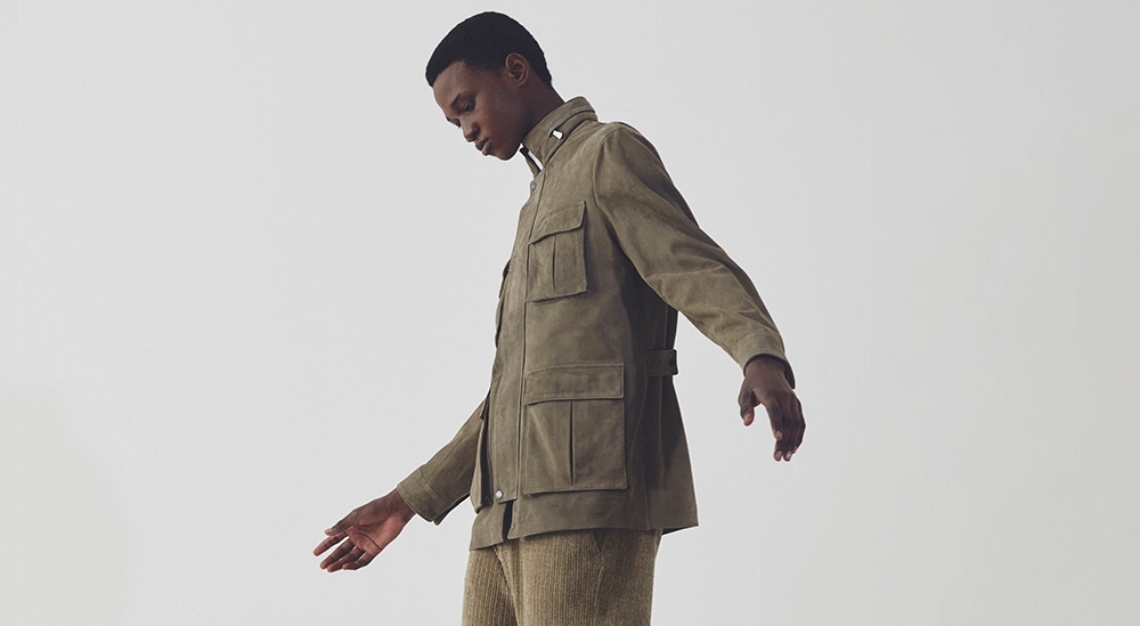The name of Douglas Millings is not one well known outside of those who work in bespoke tailoring. But it deserves to be. Unarguably one of a few defining tailors of London’s Swinging Sixties, Millings brought a design sensibility into what was then still a very stuffy, establishment world
“My dad was all about being individualistic, which showbiz people liked of course,” recalls tailor Gordon Millings, speaking of his father Douglas, who died in 2001.
“It was different to what you’d get out of the major high-street menswear shops of the period or even what you could get on Savile Row. But the times were very different too – it was all about a push to uniqueness after a long post-war period of everything being very drab. My father was one of this new generation of tailors who were part of that period’s intense creativity – in music, film, fashion – that has allowed so much of its influence to so carry well over the decades. They just wanted to try out some new ideas.”
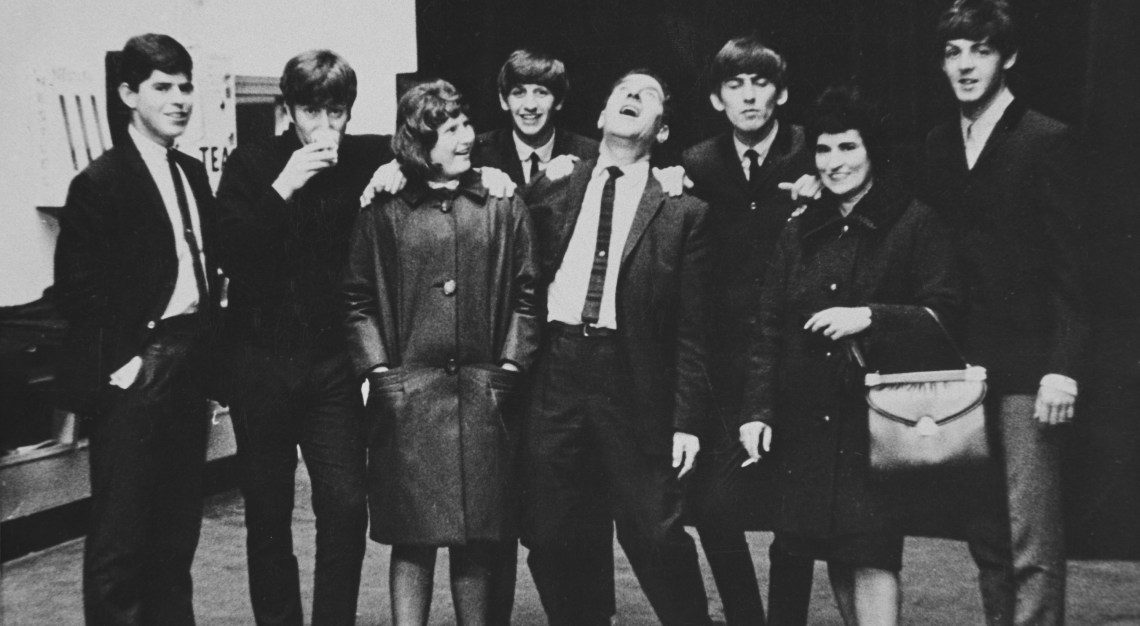
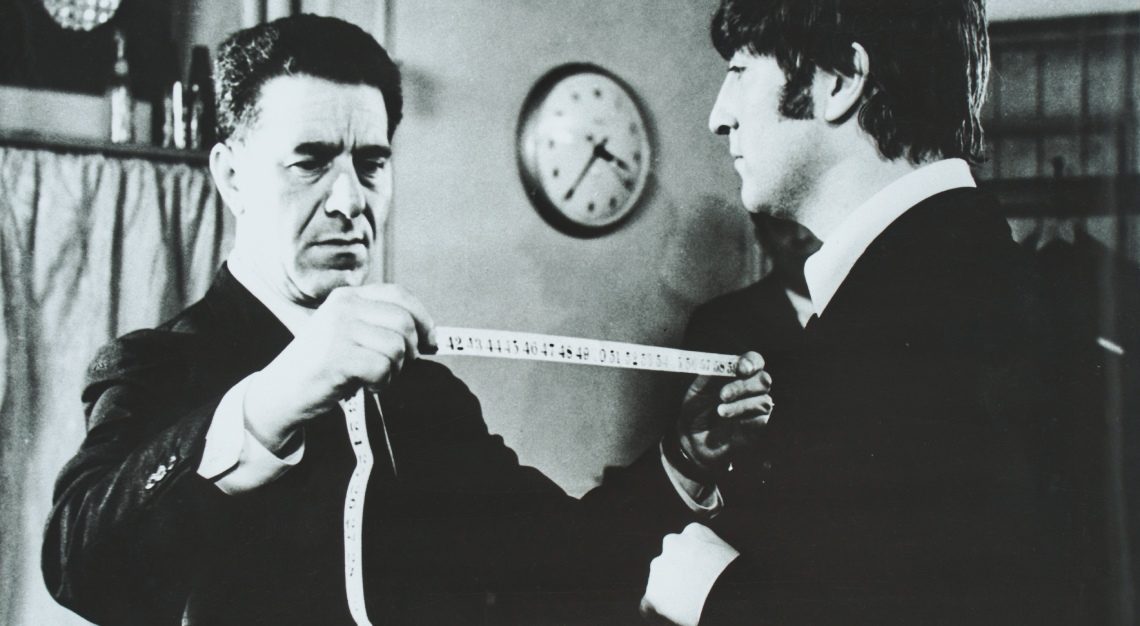
The name of Douglas Millings is not one well known outside of those who work in bespoke tailoring. But it deserves to be. Unarguably one of a few defining tailors of London’s Swinging Sixties, alongside the likes of Cyril Castle and Douglas Hayward, Millings brought a design sensibility into what was then still a very stuffy, establishment world. And in a big way. Having made a suit for Cliff Richard – the UK’s answer to Elvis – Millings was called on by one Brian Epstein, who wanted him to outfit a new band from Liverpool he was managing.
“Epstein told dad he needed a look that made The Beatles look like a modern group, rather than the rock ‘n’ roll leather jacket look they’d had for their time in Hamburg,” says Gordon Millings, now 74, who worked with his father for many years after apprenticing at Huntsman, and who retired as a tailor himself only five years ago. “Dad had no idea who Epstein was and, of course, at that point nobody had heard of The Beatles.”

It was Millings who, in 1962, devised the round-collared two-piece that would come to be known as “the Beatle suit”, based on jackets he’d cut for ship stewards. This was the suit – radical in its day, with half-inch braiding on the edges, flared cuffs and a three pearl button-fastening, and tight, flat-fronted trousers with no pockets to keep the lines lean and mean – that defined the band.
Indeed, Millings would make some 500 bespoke pieces for The Beatles over the following decade – both to wear on stage and off – including the caped coat from the cover of Help!; and the velvet-collared, three-button suits The Beatles wore for their first, ground-breaking US tour. Millings even played the frustrated tailor in the 1964 movie A Hard Day’s Night.
Now, for the first time in some 50 years, some of these pieces are back – Gordon Millings has teamed up with Dashing Tweeds, a Mayfair-based cloth house, and London City tailors MacAngus & Wainwright, to offer made-to-measure and bespoke Beatles pieces cut from the original patterns. A two-piece made-to-measure suit is priced from £1,265 (S$2,263), a two-piece bespoke suits from £2,500 (S$4,473). Even the coat with in-built cape is back, this time in a hardy tweed.
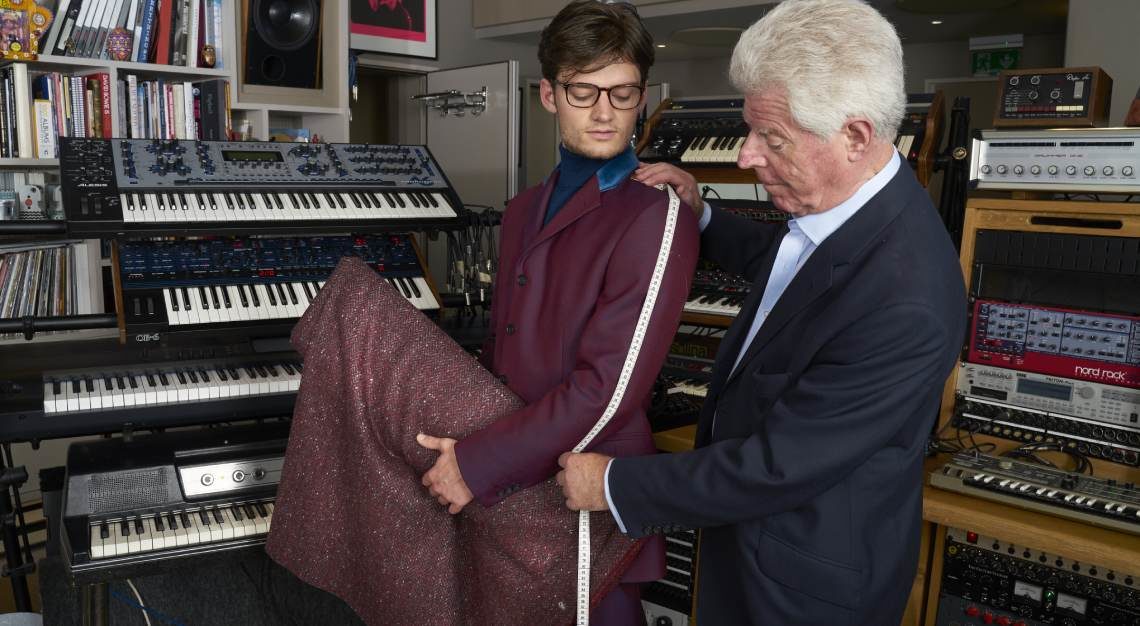
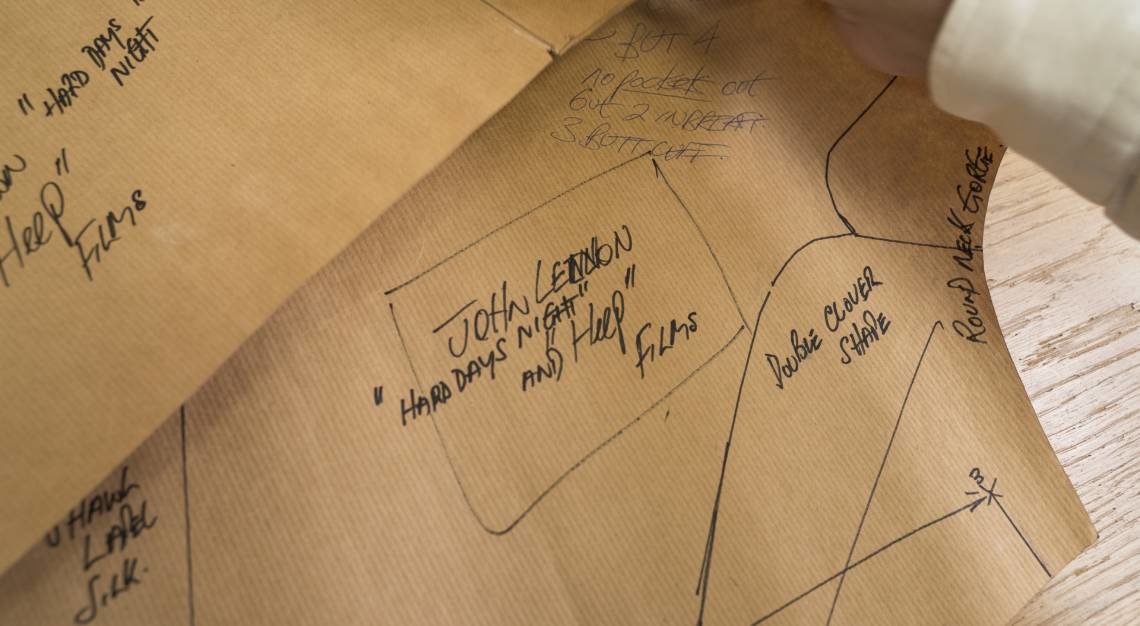
“When you look at the patterns you see what a technical challenge these pieces were – the likes of the pleated back on a mohair suit, for example,” says Dan MacAngus of city tailors MacAngus & Wainright. “That’s not the kind of thing we’re used to doing for city clients, obviously. I’m working from patterns and pictures. But Millings came up with that from scratch just so his customer would have something original. It’s impressive.”
Where The Beatles went, many others followed: The Kinks, for example, who opted for red riding jackets. The Small Faces, The Everly Brothers, The Four Tops, The Temptations, The Rolling Stones, Tom Jones – all went to Douglas Millings for their suits, Roy Orbison having his made with a concealed zip fastening.
“Keith Moon died in one of my suits,” Millings once noted. “In fact, he hadn’t paid for it.” Hollywood and entertainment stars – among them Warren Beaty, Rex Harrison and Steve McQueen – followed too. Small wonder that many of Millings’ garments have found their way into the archives of MOMA and the V&A, or are on display in Cleveland’s Rock ‘n’ Roll Hall of Fame.

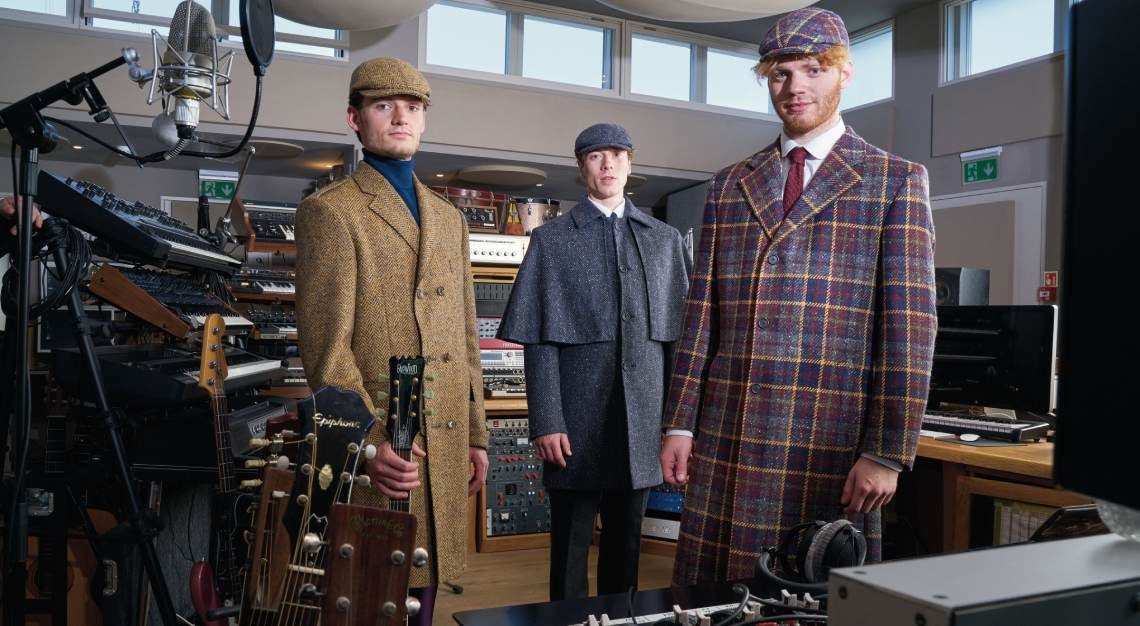
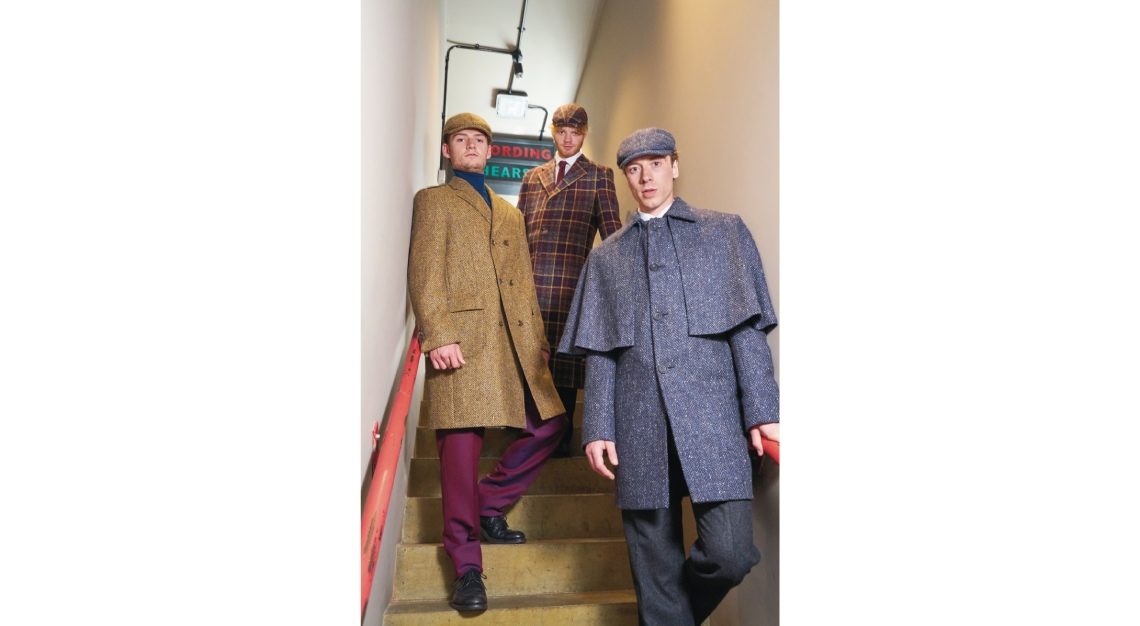
But will anyone other than the most dedicated of Beatles fans be tempted to have one of these culturally iconic pieces made? Remarkably – a testament to both his trim figure and the enduring appeal of Millings’ tailoring – Paul McCartney is still on occasion seen wearing pieces made for him well over half a century ago. But then he was always keen to put in his ideas for the tailoring too, speaking of the need for the band to have a “uniform, [so] we didn’t look like any four guys. It was a unit.” Guy Hills, founder of Dashing Tweeds, reckons Millings’ Beatles designs still resonate.
“I think for most of our customers what they will first be drawn to is the modernity of the designs, and what’s remarkable is just how modern they still are,” he says. “I’ve long appreciated the history of the Savile Row tailors but didn’t know much about London’s Soho tailors of the ’60s, like Douglas Millings. And for them tailoring was all about looking fantastic. Their original designs – and Millings’ trademark detailing, the likes of tab and button closures on breast pockets, or throat latches on tweed jacket revers, for example – have lasted so well.”
All this new enterprise needs now is a customer as loyal, and as ready to spend, as Sammy Davis Jr., who also had his suits made by Douglas and Gordon Millings whenever he was in London.
“I remember one occasion when my dad took some suits round to Sammy’s hotel one morning,” Gordon Millings says. “Sammy was still asleep. Dad went into his suite and gently woke him up. Sammy, barely awake, still in bed, asked dad to hang the suits up and then inquired what he owed him. Dad had the invoice. Sammy just waved him over to a dressing table drawer. Dad opened it and it was laden with cash. ‘Just take whatever you want,’ he said.
“He trusted dad.”
